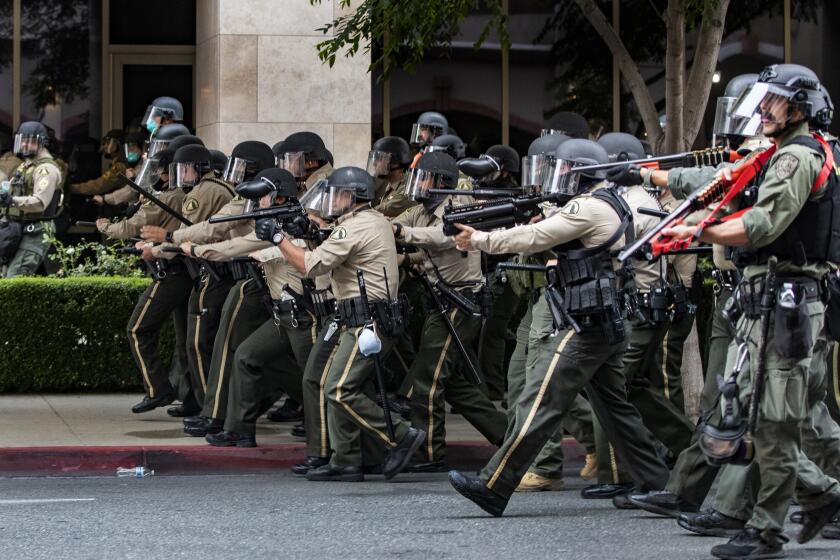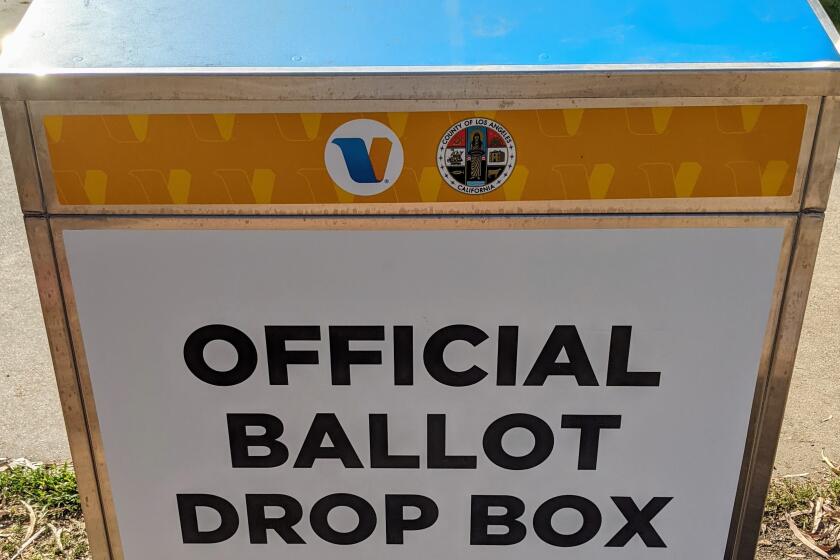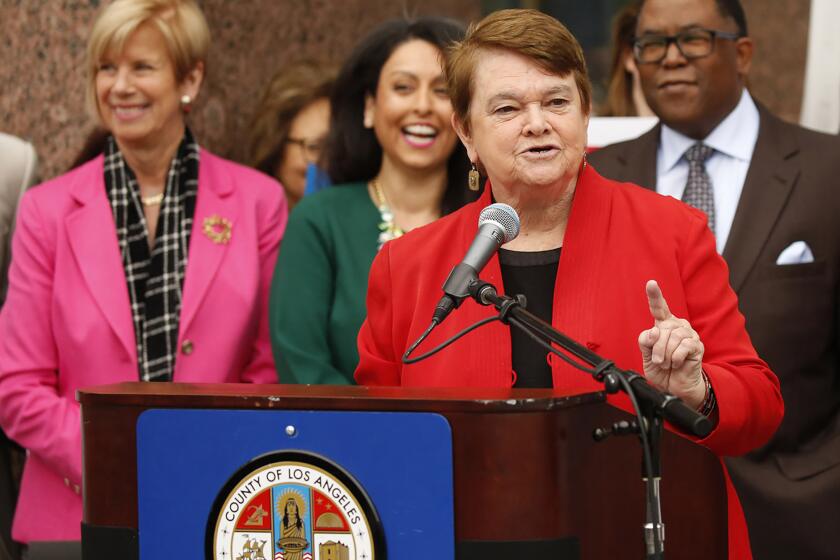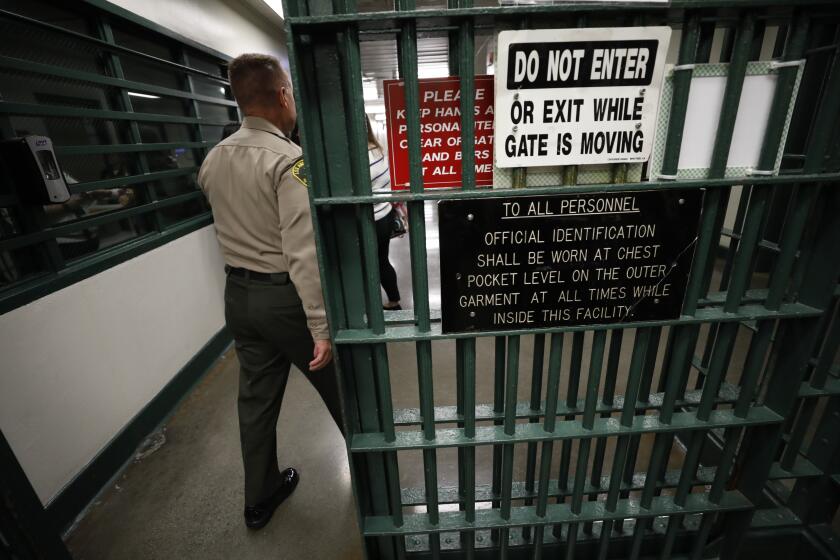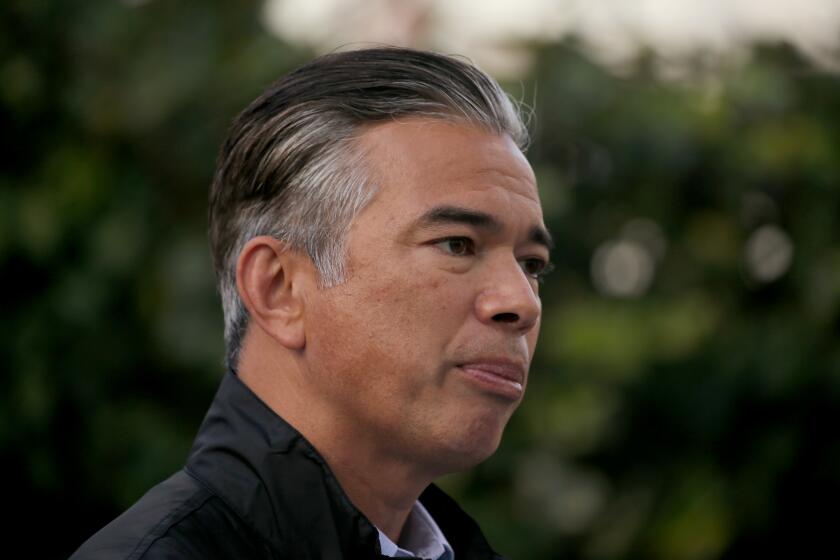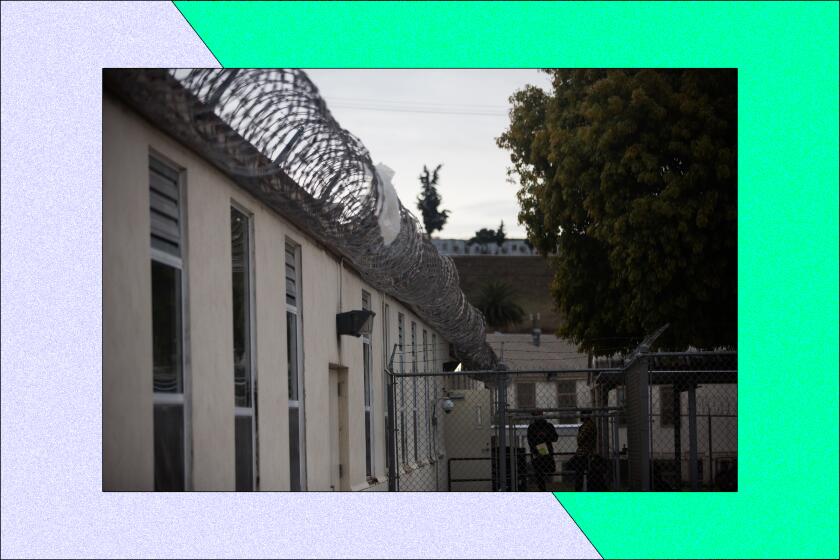L.A.’s key justice reform survives court challenge. Time to pick up the pace
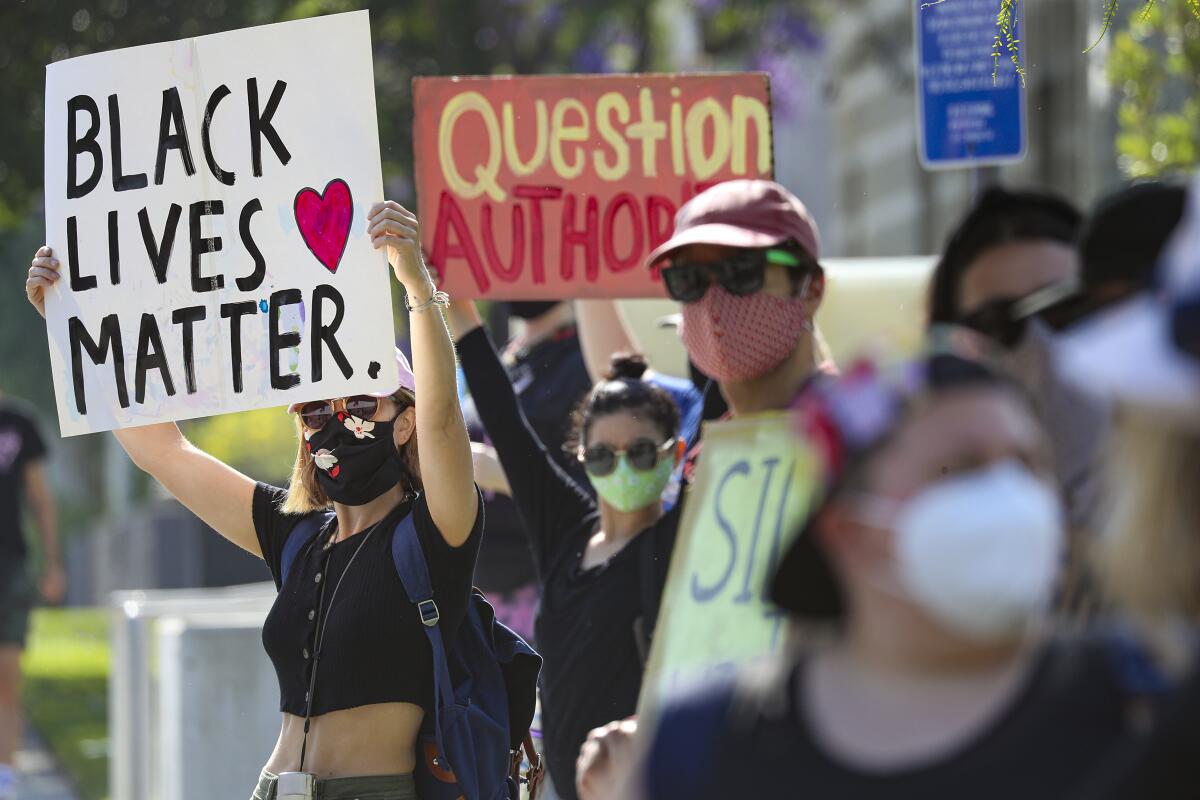
- Share via
Voters resoundingly approved Measure J, Los Angeles County’s landmark criminal justice reform, near the close of tumultuous 2020 following the police murder of George Floyd in Minneapolis and summerlong protests that called on the nation to acknowledge and correct persistent unequal treatment of Black Americans, especially in the justice system.
In passing the charter amendment, voters made it clear that they wanted more of their tax money directed to mental health care, economic opportunity and other public safety alternatives to police, prosecution and jail.
Editorial: Lots of talk, still too little change to policing three years after George Floyd’s murder
The 2020 killing in Minneapolis ignited a summer of protest and debate about the role of police, but little constructive action. But there are some promising developments.
A vastly disproportionate percentage of L.A. County’s jail population is Black and Latino. The same communities are grossly underserved by healthcare and economic development programs.
Measure J directs the county to spend 10% of its locally generated discretionary revenue on a “Care First, Jails Last” approach.
Implementation hit a snag when a Los Angeles County Superior Court judge ruled two years ago that the ballot measure violated the state Constitution by locking in annual spending requirements that are generally within the discretion of the Board of Supervisors.
There’s a dispute over just how much funding last year’s Measure J allocates for alternatives to incarceration and other equity and social service programs. Here’s what to keep in mind.
But the board wisely proceeded to make budget decisions as though Measure J, and the voters’ will, remained binding. In each of the last two years, the supervisors approved progressively greater annual allocations for nontraditional public safety programs in anticipation of next year’s county budget, when the full set-aside was supposed to kick in.
And now it will. An appeals court recently overturned the trial court ruling and ordered that Measure J be fully reinstated.
Measure J was ruled unconstitutional, but the county can still spend 10% of its budget on social services and jail diversion programs.
That makes L.A. County one of the few jurisdictions in which a racial reckoning and a fundamental rethinking of public safety in the wake of Floyd’s death may become more than just talk.
For example, when she was in Congress, Los Angeles Mayor Karen Bass twice introduced the important George Floyd Justice in Policing Act, but it twice died in the Senate. In Minneapolis, where a police officer murdered Floyd, voters rejected a landmark public safety overhaul. And in most American cities, despite claims that law enforcement has been “defunded,” police budgets have held steady or have increased, in some cases sharply.
Measure J will shift Los Angeles County funding toward a community-based, care-first approach to public safety. It deserves support.
Now a nervous nation racked by mass shootings and law-and-order posturing has lost much of its appetite for change. That puts us in serious danger of falling back onto the same foolish actions that have long fueled a dangerous cycle of criminal recidivism: defunding mental health and drug treatment, publicly supported housing and employment development, while further bulking up police.
Los Angeles County is moving — although still too slowly — in a more positive direction. Last week, county officials began accepting applications for a second year of Measure J grants to organizations that offer programs like job training, bridge housing and drug treatment. Each of these and other “Care First” programs are solidly within the county’s purview but historically have been underfunded, largely because their clientele lack political clout.
The Los Angeles Superior Court is wiping out money bail for many crimes. Evidence shows this makes the public safer, but people who should know better are likely to offer fact-free commentary about the change.
The pushback is fierce. It is grounded in the self-interest of police unions, the bail bond industry, politicians of both major parties (but principally Republicans) and others who feel threatened by the shift away from ever-larger jails and police forces toward more effective and lasting responses to disorder and dysfunction, such as expanded mental health care. The opposition to nontraditional public safety programs is adept at fear mongering and deception. It is well organized and well funded.
And some of it lives inside the county’s own house. Public employee unions, generally thought of as politically progressive, tried to block Measure J in an effort to keep county money from going to outside service providers.
Tuesday’s election produced some victories for California’s criminal justice reform movement despite Chesa Boudin’s recall
But the Board of Supervisors put the measure on the ballot anyway, and four of the five members endorsed it, at the urging of a rising generation of criminal justice reform activists in organizations including Black Lives Matter-LA and Dignity and Power Now, alongside establishment players, chiefly the United Way of Greater Los Angeles.
Their success, and the ruling by the appeals court, could make Measure J the nation’s most lasting and consequential criminal justice reform strategy to arise from the social movements of 2020.
Like the American dream, the California dream of fresh starts and fair play is undermined by rules that protect privilege and punish poverty.
It won’t be automatic. The supervisors have not yet kept their commitments to companion criminal justice reforms, such as closing the dangerous Men’s Central Jail and redirecting incarceration funding toward mental health care, or remaking the juvenile justice system. Too many successful programs, including the Office of Diversion and Reentry and Housing for Health, remain underfunded.
It is time now for the Board of Supervisors to recommit itself to its Care First agenda with programs that break the cycle of recidivism and make the county safer and more just. Voters rightly demanded meaningful change, and are entitled to get it.
More to Read
A cure for the common opinion
Get thought-provoking perspectives with our weekly newsletter.
You may occasionally receive promotional content from the Los Angeles Times.
